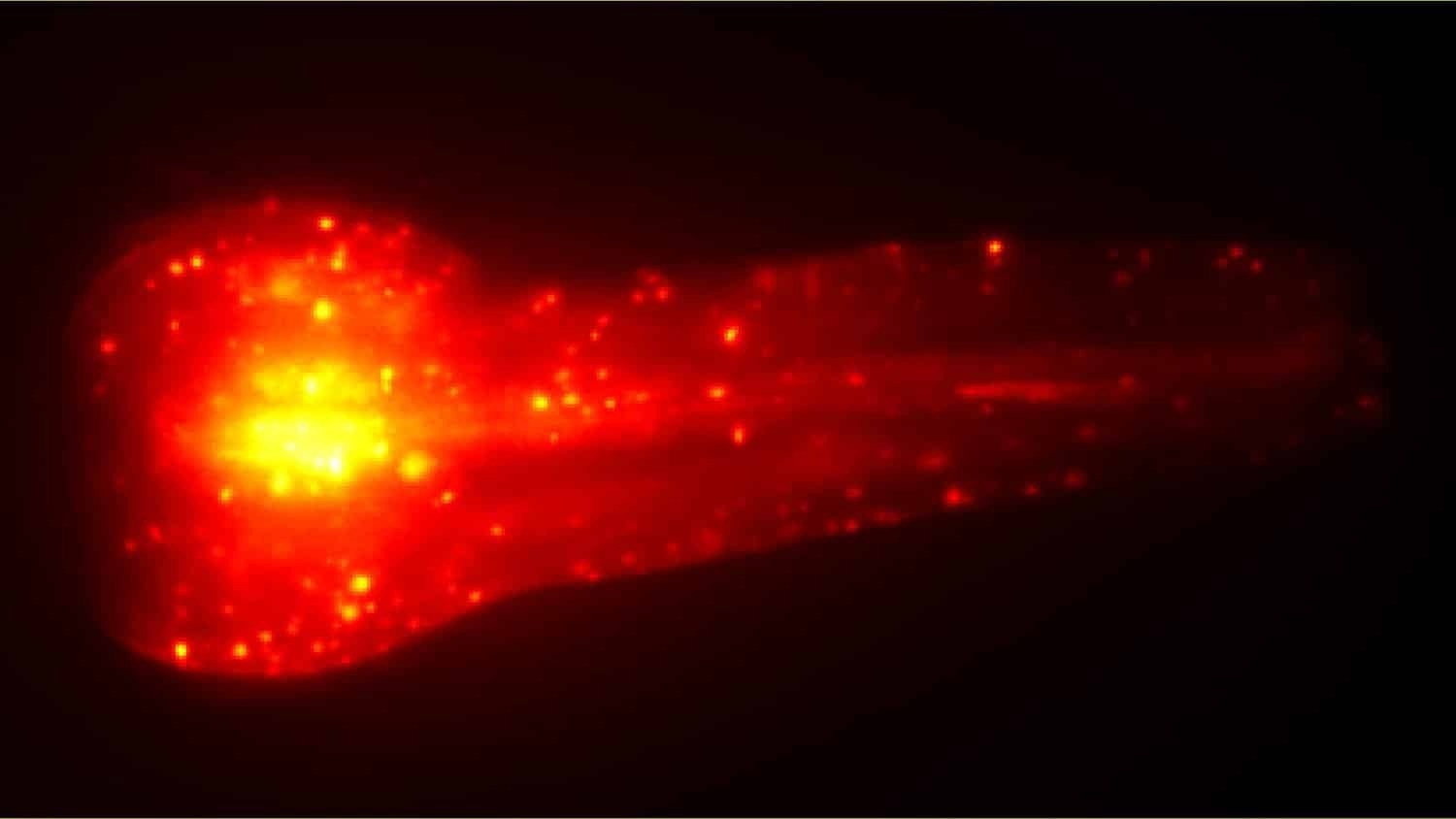A novel technique for identifying the genes that are important for aging has been discovered by scientists at North Carolina State University. The study was carried out on an animal species that is extensively utilized as a model for genetic and biological studies, but the discovery has larger implications for aging genetics research.
 The head of a C. elegans showing fluorescently labeled protein aggregates. Image Credit: North Carolina State University.
The head of a C. elegans showing fluorescently labeled protein aggregates. Image Credit: North Carolina State University.
There are a lot of genes out there that we still don’t know what they do, particularly in regard to aging. That’s because this field faces a very specific technical challenge: by the time you know whether an organism is going to live for a long time, it’s old and no longer able to reproduce. But the techniques we use to study genes require us to work with animals that are capable of reproducing, so we can study the role of specific genes in subsequent generations.”
Adriana San Miguel, Corresponding Author and Assistant Professor, Chemical and Biomolecular Engineering, North Carolina State University
Adriana San Miguel adds, “To expedite research in this field, we wanted to find a way of identifying genes that may be relevant to aging while the organisms are still young enough to work with.”
The researchers concentrated on C. elegans, a species of roundworm that is one of the most significant model organisms for genetics and aging research. The researchers concentrated on protein aggregation in cells, which is widely known to be linked to aging.
The novel technique for finding genes that may be associated with aging operates as follows.
First, thousands of C. elegans are exposed to a chemical that causes random genetic mutations. The scientists then employ an autonomous, high-throughput system to determine which roundworms have significant levels of protein aggregation in their cells while they are still young enough to reproduce.
Then, using an automated microfluidic system, the roundworms are isolated from the others and their lifespans are monitored. The roundworms with higher amounts of protein aggregation are predicted to live for a shorter duration.
Researchers determined protein aggregation and lifespan information for each of the roundworms after they have died. The roundworms with the shortest lifespans and the largest protein aggregation were prioritized for research because there is a higher chance that their mutations altered aging. The DNA of these roundworms was later sequenced by the experts.
Once we have the genomic data, we can identify the mutations in C. elegans. And the protein aggregation and lifespan data allow us to assess which mutations may be most relevant to aging. This allows us to focus future research on those genes.”
Adriana San Miguel, Corresponding Author and Assistant Professor, Chemical and Biomolecular Engineering, North Carolina State University
The individual roundworm in the sample with the highest level of protein aggregation was chosen for genome sequencing as part of the proof-of-concept testing. Researchers discovered that it had a mutation in a gene that had not previously been associated with aging.
The next step is to do additional research focusing on this gene. Is it playing a role in the aging process? And, if so, what is that role? More importantly, we think the technique we’ve demonstrated in this paper can be used by others in the research community to help identify genes of interest and—hopefully—expedite research into the genetics of aging. We’re very open to collaborating with other researchers who are interested in pursuing this line of work.”
Adriana San Miguel, Corresponding Author and Assistant Professor, Chemical and Biomolecular Engineering, North Carolina State University
Source:
Journal reference:
Midkiff, D. F., et al. (2022) Identifying C. elegans Lifespan Mutants by Screening for Early-Onset Protein Aggregation. iScience. doi.org/10.1016/j.isci.2022.105460.